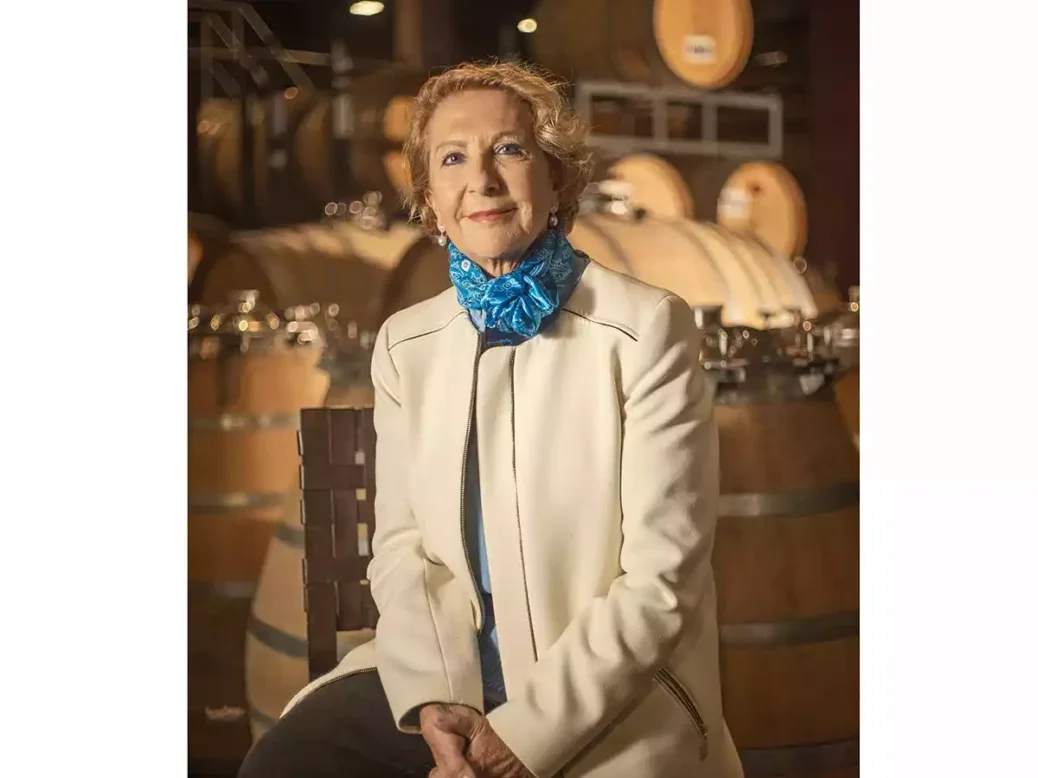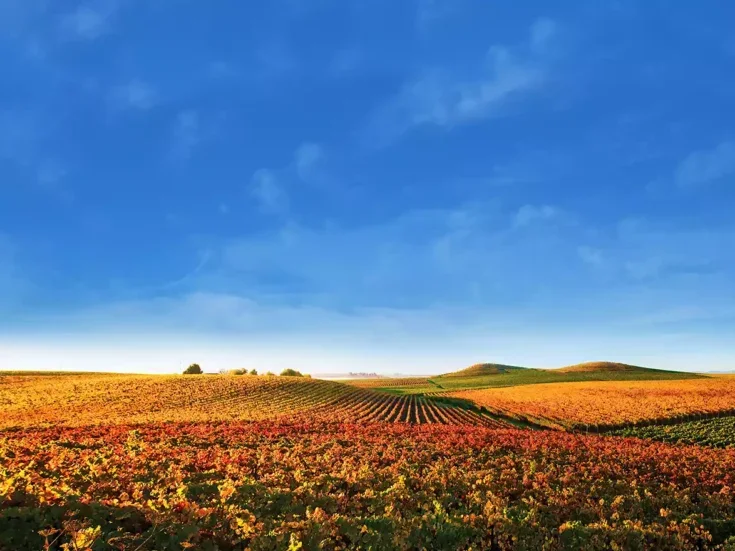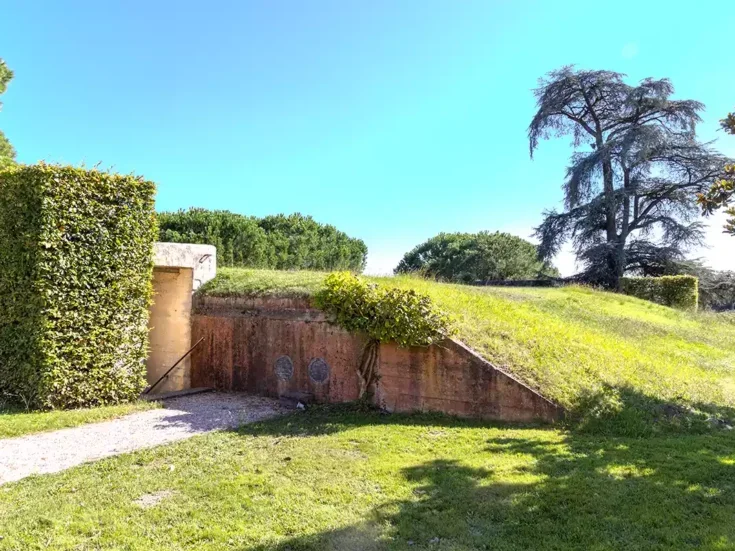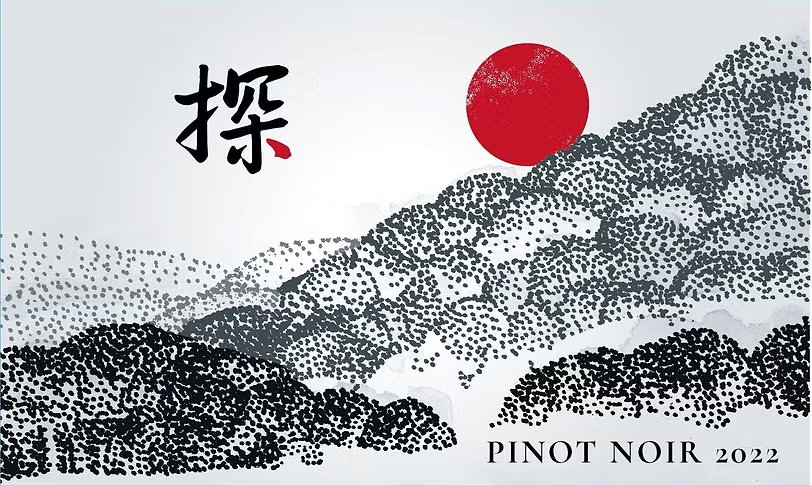
Susana Balbo tells the story of her long and varied career as a winemaker, entrepreneur, and tenacious administrator.
What do you call someone who had to battle with her parents, brother, employers, banks, and an inflation rate of 300% per month? She’s called Susana. A gentle, fragile name meaning, according to the Internet, “lily” or “lotus flower.” What her parents were expecting and what they got were, perhaps, two different things.
Susana Balbo is a leading light of the Argentinian wine industry. She’s been president of Wines of Argentina several times, she has two estates of her own and a hotel, she has had numerous consulting roles, and for two years she was a member of the National Congress. Her wines have always been elegant and alive, even when those adjectives were not applicable to many Argentinian wines. Yet when she first said she wanted to study science—her girls-only convent school only taught the humanities or accounting—her parents said no: Science schools were mixed. This is her account of her career.
Persistence and guardian angels
Balbo is of Italian extraction, her parents and grandparents having arrived in Argentina after World War I. Her parents
had only completed primary school, though her brother went through secondary school. But Balbo had a scientific mind and wanted to study, preferably physics and math. In Mendoza, where the family lived, the only options were accounting, law, or medicine. But one day, she was going to the supermarket and was stopped by a friend of her brother’s, who said, “I gather you don’t know what to do about university. I’m doing enology, and it could be a nice career for you.”
“He brought me the program, and it included chemistry, math, and so on—all the things I liked. So, I applied to the university.” In the fullness of time, she graduated summa cum laude, but just as she started her course, the military took over the government. “It was a dark moment for Argentina. It was almost civil war.”
And then she couldn’t get a job in Mendoza. The only jobs available were in the laboratories of big companies, and she knew that “a lab wasn’t my future. So, I waited for another option.” In the meantime, she worked with her parents in their business, which was textiles: fabrics, linens, embroidery.
“After a few months, I saw an ad for a winemaker in the north of Argentina. It needed four years’ experience, English and French—and I saw the ad five months late. I thought, The guy’s not going to answer my application. I didn’t fulfill any of [his requirements].” But she wrote anyway—“Don’t ask me what I put”—and out of 87 applicants, she got the job. “I was the only woman, and the owner said, ‘I’m taking a huge bet, because you will either be very good or very bad.’ I was 23. I thought, Does he fancy me, or is he flattering me?”
The winery was Michel Torino in Cafayate, and Balbo stayed there ten years. “It was my second college. Everything was challenging. I had been very protected: University was very easy, and I didn’t need to work to sustain myself. My father was mad at me because he said I didn’t need to work—but I needed the experience.
“Salta was isolated, in the middle of the mountains, with no radio or television, and the electricity stopped at 9pm because the generator went off. So, I had to learn to handle situations I was not accustomed to. Fuel for cars in northern Argentina was alcohol then, made from sugar cane, and the engines weren’t prepared for it, and the distributor system took air in and the car would stop. It was annoying to go to the car man, so I needed to learn how to fix it. It could happen in the mountains, and you could be stuck for six hours. Everything I needed for the winery came from Salta, 200km [125 miles] away, and I could do the mountain road with my eyes shut.”
She met her husband when he was working in admin at another winery—owned by a woman “who sent a warning to all her executives forbidding relationships with executives at other wineries, because she knew I was dating him. He ignored it and got fired.” It was hard for him, says Balbo, because it was a small town and he had no other options. So, he decided to work on his father’s land, planting crops, and there wasn’t much water, and everything was difficult.
Then the owner who had hired Balbo had a heart attack and was told by his doctor to stop working, so he sold the winery. Hyper-inflation arrived, and in Balbo’s final year there, the winery had three different owners. One, she says, used cash flow for speculation. She says she didn’t get paid for nearly a year. “I had to support my family. I had two children then, aged one and three. So, I reinvented myself, making sleepwear and embroidered linens; I designed them, and nuns in Cafayete made them, and I sold them in Salta.”
How do you cope with hyper-inflation? This is how. “I would make phone calls to my suppliers, checking the price for labels and so on. On Sunday or by 5am on Monday, I would do costings and set the price for the day. I would sell to my customers at 7am, and they wired the money before noon. I got it the following day, then I paid all my suppliers. On Friday, I shipped the wine.”
Balbo got on well with her in-laws. “My father-in-law was very intelligent; he had founded a hospital, and he managed a small winery. He respected me a lot. And out of five daughters-in-law, I was the only one allowed in my mother-in-law’s kitchen. I learned a lot of recipes from her. It was a nice relationship.” But Balbo’s father and her husband did not get on well. So, in 1986, when her father asked her to join them because they were starting a wine business, she knew there would be no future because of that dislike. “So, they decided to establish a winery, leaving me out. My parents and my brother were the only owners.”
Balbo went back to Mendoza, though, because she needed a loan from her father to pay her debts. “It was strange working with them. I lasted six months. My brother was impossible.” They bought wine in bulk and sold it in demi-johns, to the tune of about a million liters a month. “If I said a wine wasn’t good enough, they would say, ‘It’s fine, we’re going to buy it.’” Worse: “They promised to find something for my husband, and they didn’t. Every day, I’d come home, and he’d be sitting on the sofa. He was getting ill. So, after six months, I said to my father that I would leave. My father had said, ‘I can’t give you shares, but I’ll give you 10% of the profits each year,’ so I asked for that. My brother said, ‘You’ve only been here six months, and we haven’t closed the accounts’—he didn’t want to help me.”
Her father told him to give Balbo 3,000 demi-johns in payment, worth US$3,000–4,000; “it was low-priced wine.” She and her husband traveled around Argentina selling it door to door, and two years later they bought a very old winery. They sold everything in Cafayete for $40,000 and got a loan from his brother; the winery cost $60,000, and they invested $20,000 in improvements. They also got a loan from the Italian government for winery equipment; usefully, Balbo had an Italian passport. A loan from a bank in Argentina completed their funding.
A couple of years later, they were scammed. A buyer ordered 25,000 cases (for which they didn’t have enough production), and they asked for guarantees; the buyer gave payment insurance and paid in eight weekly checks, which bounced. The insurance turned out to be false, so Balbo’s suppliers demanded payment and took bottled wine in lieu.
Balbo is nothing if not persistent—and besides, she says, she has a guardian angel. (Guardian angels, it seems to me, vary in quality; hers seems of high caliber.) She says, “I met the owner of the insurance company one Sunday; I had worked all weekend. I had called his son, a national senator, and explained. A friend of the family had told me that all insurance companies need reinsurance in London. So, they could declare the insurance to be correct, and get the payment back from their reinsurers. Part of it, anyway. And I got back 70%, in four monthly installments.”
Repayment of the bank loan, however, was due before this money arrived. Balbo explained to the bank that they would get their money; instead, though, the bank went to the winery to seize the machinery. “But I have a guardian angel. The warranty was for the old technology, not for the new technology in the winery. [The bank] wanted the new things, but [the papers] hadn’t been changed to include the new things.”
But it was a dangerous market, and the hyper-inflation persisted. Balbo sold the winery. Two years later, the buyer called her. “He said the bank was claiming for the payment of the loan; I told him it had already been paid. The bank, when it changed hands, had kept my payment of $60,000 in cash and had kept the debt on its books.”
The bank had gone from public to private ownership. So, Balbo went to the new owner and told him that all the payments and receipts would be in a folder in the archive, and she went there and she found them. “He saw there was no problem. But I saw how corrupt people were.”
Her marriage broke up, her husband left Mendoza and went back to Salta, and she gave him half and went off traveling. She went to the US and made wine and met a lot of people; she went to Europe and took on various consultancy jobs in Spain and Italy, as well as in Argentina. “I had lots of work.”
It was the buyer of The Wine Society in Britain, when tasting her wines, who asked why she didn’t have her own winery. “He said my wines suited the British palate—so I decided to rent a winery. Not invest, but I met a guy from Italy who had a very new, very small winery, and he needed help because he was having treatment for cancer.” The wine was just for export. Anuvis was the winery, and Liberty Wines in London bought the wine. This was in 1999.
“In 2001, I needed to start my own winery. I was already selling 15,000 cases, but that was way too small, so I bought land and planted. But it was a moment of great struggle in Argentina, and the revolution happened, but my angel… I had money in my account, and interest, for building a winery. In September I was looking for a partner: I offered 40% for $600,000, which was about what I needed to build a winery. I had the money in the US, but I need savings or I don’t feel comfortable.”
Then 9/11 happened. “A million dollars became $350,000. I was married again by then. I told my husband I would invest my own money in the project, though it was earmarked for the children’s education. It was the best decision of my life. I financed the winery without a loan, and inflation multiplied my winery capital by four. I was able to finish the winery, and I had help from people who respected me for long payment terms for tanks and so on. Lots of people helped me. I renovated everything.”
A year later, her son was due to go to UC Davis, and she discovered that it required the tuition fees to be paid up front. She didn’t have the money so relied on credit, including a loan from a doctor friend. A few years later, when she divorced her second husband, this doctor friend bought 20% of the company for $3 million to pay off the ex-husband.

Forgiveness, survival, and the future
Since then? Relatively plain sailing; or at least no such dramas. “I’ve been making wine for 42 years,” she says. “I’ve developed high-altitude vineyards at 1,600m [5,250ft]; it’s a unique place for whites and for Pinot Noir. I will build a second hotel. I developed a luxury hotel. Last year I started three new companies. I’m focused on developing them for my children and grandchildren. When things are calmer, my dream is to live in a small vineyard and teach my grandchildren how to be in love with a vineyard.
“When I put my savings in a foreign country, I started to feel financially secure. My tax residence is in Uruguay. The hotel has good revenues, the winery has good revenues, and I have savings. I like to have savings. My father was like me. My brother made my life so difficult. He said to my mother, when that company failed, that I had stolen money from it to pay my company, and my mother believed him for 30 years.
“Today, I pay my mother and brother a salary, but they do nothing for me. My mother never paid into a retirement pension and nor did my brother. My father had cash savings, but my brother would take them and invest but without a brain.”
It was when her brother’s son died early of cancer that, she says, her brother began to change. “He said to my mother, ‘She never stole money from the company, and I lied to you. I don’t want to die without telling you the truth.’” Her mother asked for Balbo’s forgiveness.
“I was several years without speaking to them. My children said, Why forgive them? But I said, ‘Look where we are, look where they are. We have to forgive, otherwise it can damage you.’
“My brother now is grateful. He lives with my mother. She’s not ill, but she doesn’t want to walk, and he looks after her. I say thank you to him, and he says, ‘It’s the least I can do after all I’ve done.’ When he lost his son, he realized that life is too short to live a lie.
“My father said, ‘The world is round; you’ll meet people again, and you need to be able to look them in the eye.’ That’s why I became involved in politics. I thought I could contribute to the country.”
Both of Balbo’s children work in the winery now: her son José as winemaker, her daughter Ana as marketing manager and hospitality—she’s in charge of the hotel. Her nephew, too, her brother’s son, manages the hotel. “He’s been working for me for 23 years.”
Coming to terms with her life has not been easy, however. “I didn’t have a very happy childhood. Maybe I would give the young Susana a huge hug and tell her, Trust in yourself. I was very insecure, without self-esteem. At 32, I had the face of a 72-year-old. My mother focused on my father and brother, and she always said, ‘Your brother is clever, but you won’t find a husband as handsome as your father.’” She underwent a Freudian analysis for many years, “very long, very deep. I understood many things.”
“We are survivors in Argentina,” she says; and of herself she adds, “Resilience is my best quality. I see a glass full.” And her worst fault? “I don’t have patience. My parents had suggested that I become a teacher, but I said I’d kill [the students] if they didn’t learn. I couldn’t wait for them to learn.” Her own pregnancies were difficult; she had to stay in bed or risk losing both, which she found tough. “I am very organized, and with the children a schedule had to be followed: Get up at 6am, then school, pick up at 5, homework, dinner at 8, bed before 9. Most of my friends were more flexible, and my children complained. But when my son was living in China, he called me to say thank you. He said, If you hadn’t taught me what you did, it would be impossible for me to do what I do.”
Susana Balbo has been the subject of a study of entrepreneurship at Harvard, she has received a lifetime achievement award, and her wines are lauded everywhere. “Consider the lilies: they toil not, neither do they spin.” Of all the names to pick…






